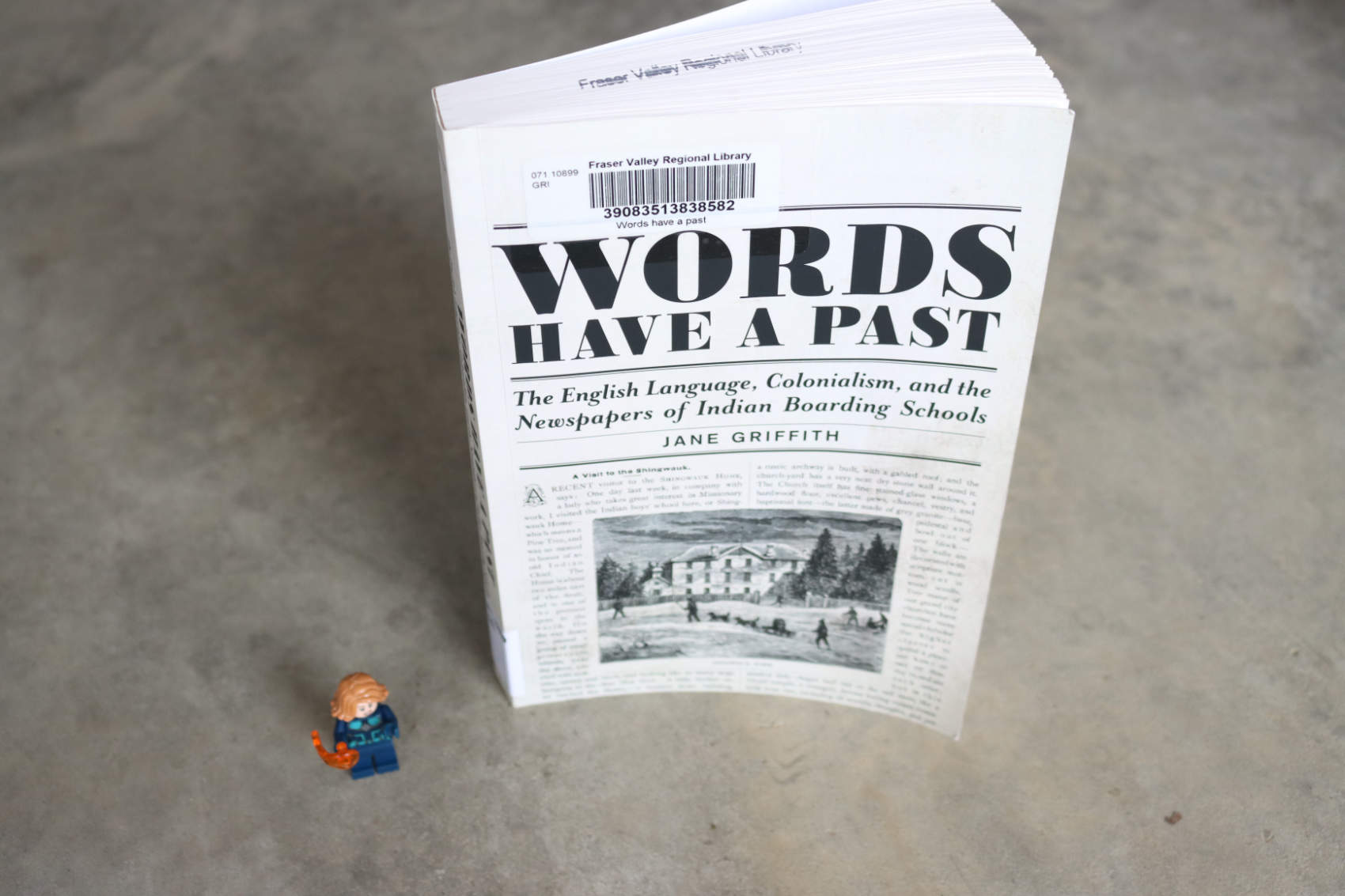Up front let's get this out, I'm a white dude of middle age. There are lots of things I don't know and can't understand at an emotional level because of my upbringing. I don't think this means I shouldn't expend effort to see through the eyes of others though.
To start down this road one I read Words Have a Past by Jane Griffith to help me understand what colonial settlers did to Indigenous peoples. Since this is my first read in the field I have no rating for the quality of the book as I have no other reading to judge it against. Instead I'll focus on some of the things that stood out to me as I build out my education on Indigenous and colonial relations.
Words Have a Past is built upon a reading of the newspapers produced by residential schools in the US and Canada. Griffith uses the language in the paper to shed light on how Indigenous peoples and practices were viewed by the principles and portrayed towards the predominantly white settler readers.
Probably the biggest thread that connects everything is that any behaviour by Indigenous peoples that differed from what settlers were used to was viewed in a negative light and should be stamped out. Indigenous parents were continually viewed as inept and unable to care for their children. They should have no say in the education of their children and in fact residential schools pursued a policy of separation between family units so that children wouldn't be "contaminated" with Indigenous practices.
School newspapers framed Indigenous issues as "the Indian problem" which engaged in removing the natives as the original inhabitants of the land. This is because acknowledging that also means that settlers would have to acknowledge their theft of land from it's inhabitants.
The schools themselves engaged in linguicide of Indigenous languages and only they could judge when it was appropriate to use an Indigenous language. One principle in particular collected Indigenous words from students, sometimes under what appears to be duress, while pursuing an English only policy at his school. It was okay to speak to him, but not together. This policy also served to sever connections between generations since as students graduated and visited relatives they could no longer speak the language of their grandparents or parents, some of whom could not speak English.
Ultimately in my reading I've got a bigger list of books to dig in to for education. I think that this is one I'll purchase for reference and for the extensive bibliography in the back to help further my reading on the subject. This is only my first step down the road of educating myself more thoroughly around how Indigenous people were treated in Canada.
Purchase Words Have a Past on Amazon
Purchase Words Have a Past on Book Depository
